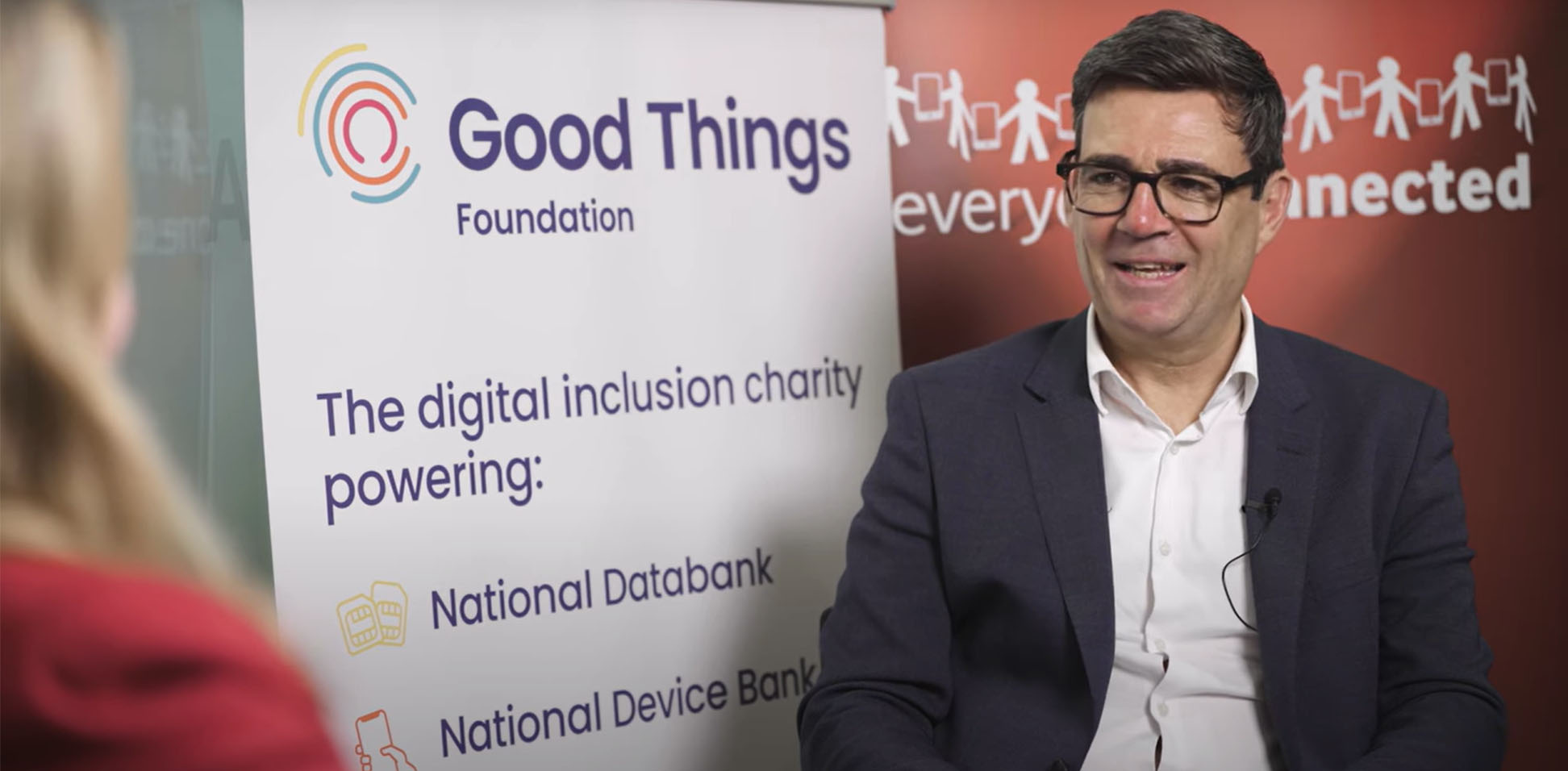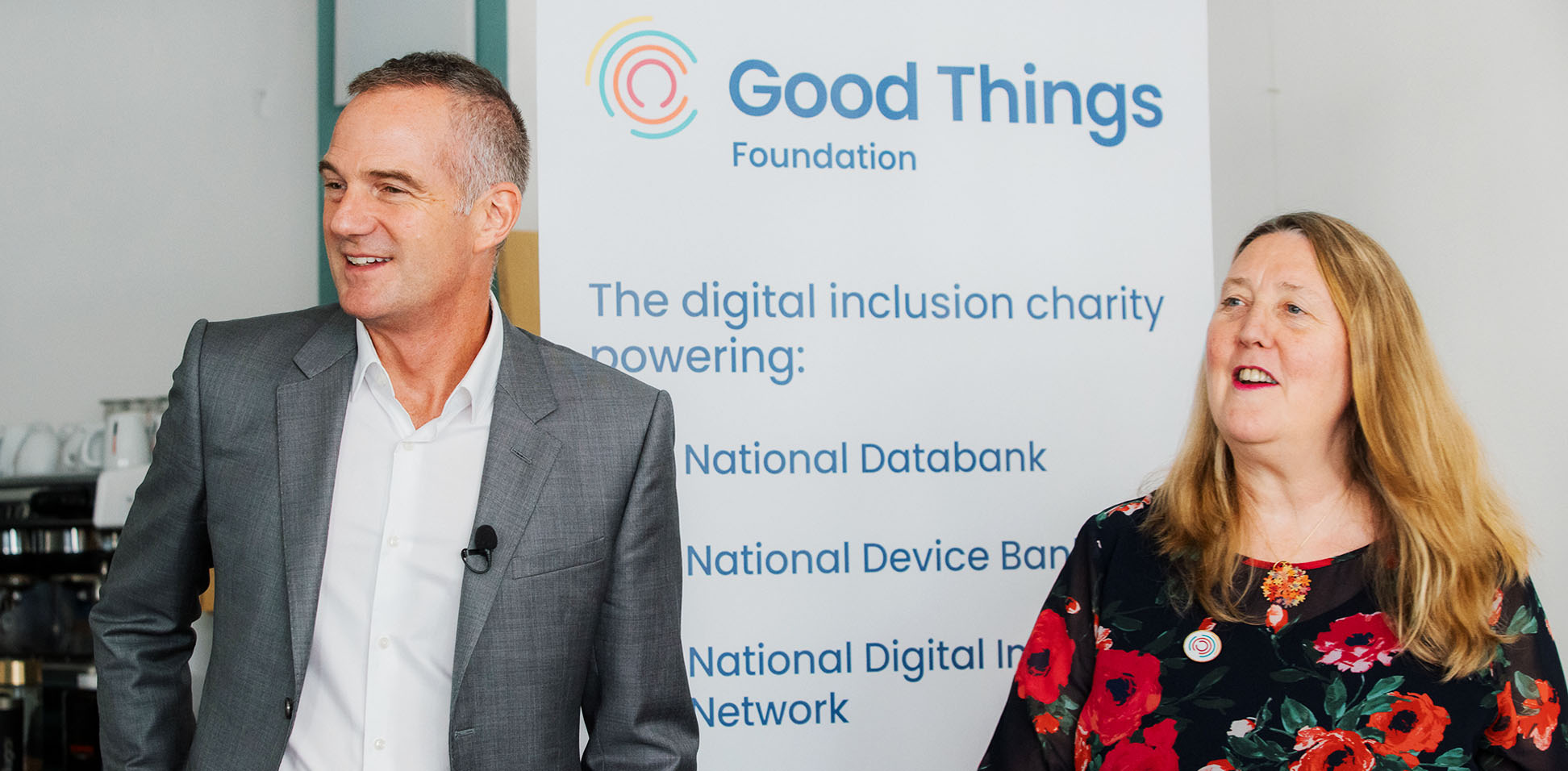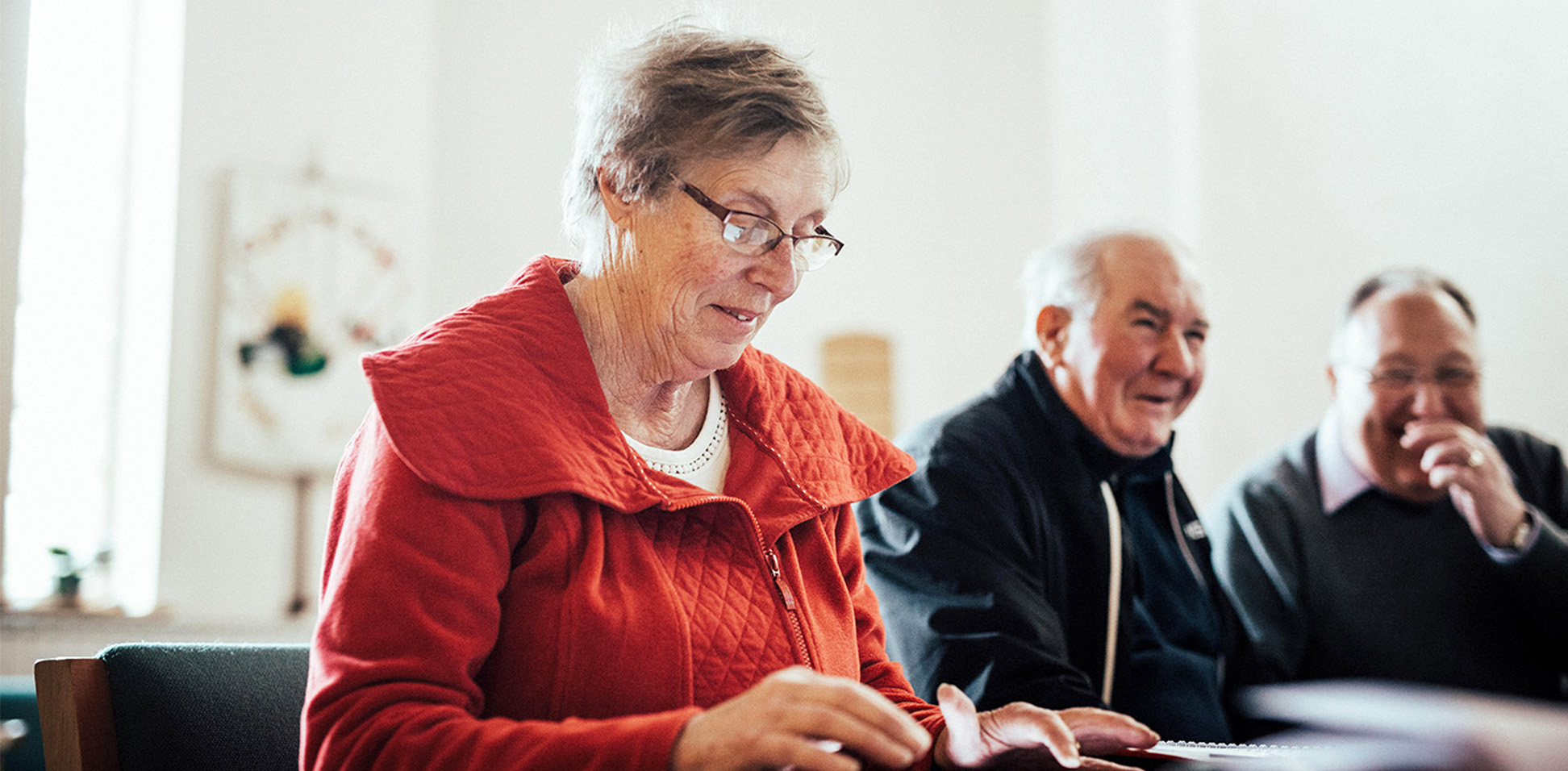Digital inclusion takes a village
Our Associate Director Communications, Campaigns and Advocacy, Natasha Bright-Wray, reflects on a recent visit to National Digital Inclusion Network member, Church Street Library, with a member of the Department for Science, Innovation and Technology team.
Visiting a National Digital Inclusion Network hub
This week, I had the pleasure of visiting Church Street Library, part of the bi-borough Libraries and Archives service for Westminster City Council and the Royal Borough of Westminster and Chelsea alongside Rebecca Stephens, Deputy Director of Technology at the Department of Science, Innovation and Technology (DSIT).
The visit really demonstrated that digital inclusion cannot solely depend on the person who is digitally excluded seeking support, it takes a village.
Without a device or connectivity data
At the reception of Church Street Library, a member of the National Digital Inclusion Network based on a bustling London market street, people drop in to ask for help to complete online forms, and how to access and use the NHS app. Some ask to use the computers, as they don't have their own device or connectivity data.
The staff at reception are an important component of the digital inclusion landscape, often faced with multiple challenges such as language barriers to understanding the financial hardship local people face.
The vital role libaries play in supporting digital inclusion
We know what a vital role libraries play in supporting people to become digitally included, and Church Street Library is a fantastic example of best practice: providing essential support to residents through free digital skills workshops and connectivity via the National Databank. By tackling affordability barriers and offering IT lessons in multiple languages, including Farsi, Arabic and Kurdish, the library ensures that a wide range of residents can access the internet.
Using Learn My Way - our digital skills learning platform
Run by Digital Volunteer Amir Jalali, the IT drop-in class hosts around 15 people with a computer per person. Some have Learn My Way, our digital skills learning platform, open and are working through the topics that take them from learning how to switch on their device, through to sharing files, completing forms and staying safe online. Others are putting their CVs together, or accessing services that haved moved online.
Toufik Bakhti, Church Street's Library Officer, tells us that there are increasing numbers of people seeking support at the library to access services - and such was the growing demand for help with the NHS app, that the library responded by seeking another digital volunteer and setting up a separate IT help session on Thursday afternoons.
Whilst we talk with Amir, a lady walks in asking for help to learn how to use her iPad. The library supports people of all ages - with two adult classes per week and multiple sessions for young people too.
Digital inclusion support
Toufik told us that the library wouldn't be able to offer digital inclusion support if it wasn't for the services available nationally from Good Things Foundation. The library has already distributed over 300 free pre-paid SIM cards through the National Databank, enabling residents to stay connected and access essential online services.
From the volunteers, to the library staff who apply for small grants to enable them to deliver a range of services, to national charities like Good Things as well as the local authorities that run the library - digital inclusion takes more than just one person helping another, it takes a village.


